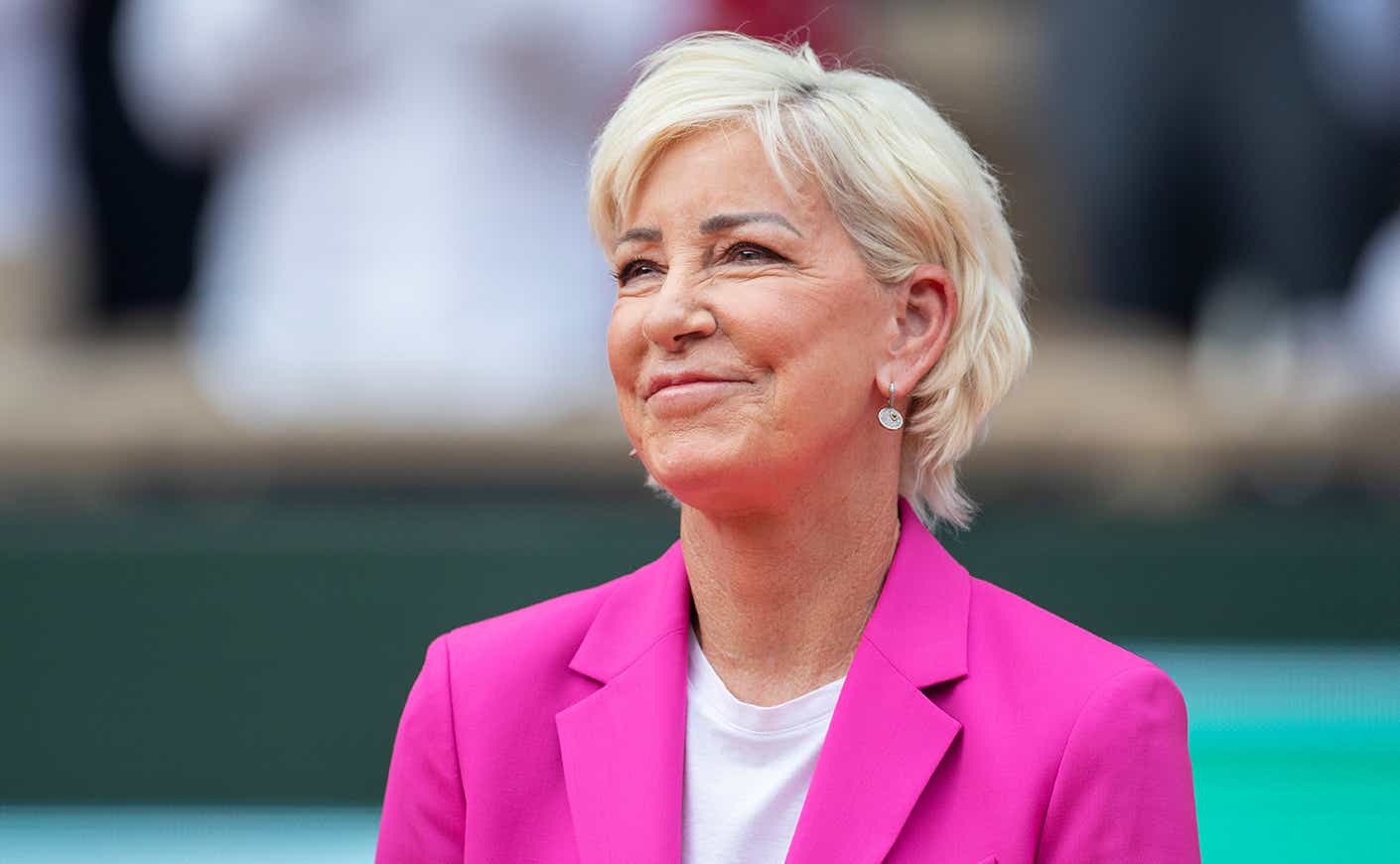Two years after being diagnosed with ovarian cancer and about 10 months since announcing she was in remission, tennis legend Chris Evert has shared a heartbreaking health update: Her cancer has returned. In a statement to ESPN, Evert said, "Since I was first diagnosed with cancer two years ago, I’ve been very open about my experience. I wanted to give all of you an update. My cancer is back." She said that she won't be able to join her colleagues at the Australian Open next month, but said, "I'll be ready for the rest of Grand Slam season!"
Here's more on what we know about Evert's diagnosis.
What kind of cancer does Chris Evert have?
In January 2022, Evert revealed she'd been diagnosed with stage 1 ovarian cancer in November 2021. In May of that year, she completed her sixth and final chemotherapy session. At that time, she said she had stage 1c ovarian cancer that was discovered following a preventative hysterectomy. In January 2023, she revealed she was cancer-free.
This week, the 18-time Grand Slam singles winner informed the public that her cancer came back and said, "doctors found cancer cells in the same pelvic region." She said that the cells were removed and she's started another round of chemotherapy. Evert expressed some optimism in her statement, saying, "While this is a diagnosis I never wanted to hear, I once again feel fortunate that it was caught early."
What is stage 1c ovarian cancer?
According to the American Cancer Society, the stage of a cancer refers to whether it has spread and if so, how far — the lower the stage, the less the cancer has spread. Stage 1c ovarian cancer means that the cancer is present in one or both of the ovaries or fallopian tubes but it has not spread to nearby lymph nodes or to distant sites. Stage 1c in particular indicates other conditions could be present, including (but not limited to) cancer being found on the outer surface of at least one of the ovaries or fallopian tubes or that the tissue surrounding the tumor ruptured during or before surgery.
Chris Evert discovered her ovarian cancer after her sister passed away from the disease
In 2020, Jeanne Evert Dubin, Chris Evert's younger sister who was also a former professional tennis player, passed away from ovarian cancer at 62. Her sister's death inspired her to undergo genetic testing to fully understand her family history and risk.
"Jeanne wasn't BRCA positive, but genetic testing revealed she had a BRCA-1 variant that was of 'uncertain significance,'" she said in a January 2023 post on ESPN.com. She added, "The doctors didn't recommend genetic testing for me or my siblings, and we stayed focused on Jeanne's treatment." Later, after Jeanne's death, doctors reclassified her BRCA variant as "very clearly pathogenic." After getting tested herself, Evert learned that she had the same BRCA-1 variant and scheduled a preventative hysterectomy. "But when my pathology report came back, my doctors and I were stunned to find that I had malignant cells and a tumor in my left fallopian tube," she explained.
"It is only because of the genetic road map my sister left behind and the power of scientific progress that we caught my cancer early enough to do something about it," Evert wrote.
In her message on Friday, Evert continued to stress the importance of prevention and early detection. "I encourage everyone to know your family history and advocate for yourself. Early detection saves lives."
According to the American Cancer Society, ovarian cancer is the fifth deadliest cancer among women and accounts for more deaths than any other cancer of the reproductive system. About 19,710 women will be diagnosed with ovarian cancer this year, and about half of women diagnosed with this cancer are 63 or older.









